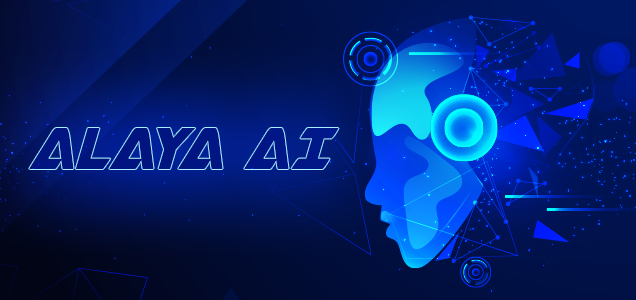Artificial intelligence has become one of the most transformative forces of the 21st century, reshaping industries, economies, and societies. Within this vast technological evolution, Alaya AI stands out as a platform that merges advanced machine learning with data-driven insights to create intelligent solutions for organizations, developers, and everyday users. More than just a tool, represents an ecosystem that is designed to harness the collective power of data, community input, and adaptive algorithms to solve real-world problems.
In this comprehensive article, we will explore what Alaya AI is, how it works, its unique features, use cases, benefits, and potential challenges. By the end, you will have an in-depth understanding of why is being considered a rising star in the world of artificial intelligence and how it could shape the future.
What is Alaya AI?
Alaya AI is a modern artificial intelligence platform that leverages collective intelligence, big data, and advanced machine learning models to deliver intelligent decision-making solutions. Unlike conventional AI tools that rely heavily on pre-defined datasets and algorithms, Alaya AI integrates community-driven data collection, natural language processing, and adaptive learning models. This creates a more dynamic and inclusive approach to AI development, ensuring that the system evolves continuously based on real-world inputs.
The primary goal of Alaya AI is to democratize artificial intelligence. Instead of being limited to a handful of large corporations, it seeks to provide AI capabilities to individuals, startups, researchers, and enterprises of all sizes. With an emphasis on collaboration, data sharing, and decentralized intelligence, Alaya AI represents a movement toward more transparent, accessible, and ethical AI development.
Key Features of Alaya AI
Community-Driven Intelligence
One of the most distinctive aspects of Alaya AI is its focus on collective intelligence. By enabling individuals and communities to contribute data, feedback, and insights, the platform ensures that its AI models are diverse, representative, and less biased compared to conventional AI systems.
Adaptive Machine Learning Models
Alaya AI employs adaptive learning, which means its models can evolve with new data inputs. Unlike static algorithms that require manual retraining, the platform automatically refines its predictions and outputs as it ingests more information.
Multi-Domain Applications
Alaya AI is designed to serve multiple industries, including healthcare, finance, education, e-commerce, marketing, and urban development. Its flexibility makes it a powerful solution for diverse challenges, from fraud detection to personalized learning.
Ethical and Transparent AI
Transparency and fairness are core values in Alaya AI’s design. The platform emphasizes explainable AI (XAI), allowing users to understand why decisions or predictions are made. This ensures greater accountability and reduces the risks associated with black-box algorithms.
Data Sharing and Privacy
Alaya AI integrates advanced encryption and data privacy mechanisms. Users can contribute and share data without compromising confidentiality, ensuring compliance with regulations like GDPR and other data protection standards.
Integration with Other Systems
The platform is built to integrate seamlessly with existing enterprise systems, cloud platforms, and APIs. This interoperability makes it easy for businesses to adopt Alaya AI without overhauling their current technological infrastructure.
How Alaya AI Works
Alaya AI operates through a combination of data collection, machine learning, and human input. Here’s a simplified breakdown of its process:
- Data Collection – The system gathers information from multiple sources, including user contributions, public databases, and real-time feeds.
- Preprocessing – The raw data is cleaned, organized, and standardized to ensure quality and consistency.
- Model Training – Machine learning models are trained using the preprocessed data. The adaptive learning system ensures ongoing refinement.
- Community Feedback Loop – Users and contributors provide insights, corrections, and evaluations, which feed back into the system for continuous improvement.
- Deployment – The AI models are deployed across various industries and platforms, delivering intelligent insights, predictions, and automation.
- Monitoring and Updates – The platform continuously monitors performance, retrains models when necessary, and updates its features to keep pace with changing needs.
Use Cases of Alaya AI
Healthcare
In the medical field, Alaya AI can analyze patient records, medical images, and genetic data to assist doctors in diagnosing diseases earlier and more accurately. It also supports drug discovery, personalized treatment plans, and predictive analytics for public health.
Finance
Financial institutions use Alaya AI to detect fraudulent transactions, optimize investment strategies, and provide personalized banking services. Its adaptive models allow banks and fintech companies to respond quickly to emerging financial threats.
Education
Alaya AI enables personalized learning by analyzing student performance, preferences, and challenges. Educators can create customized learning paths, while institutions can use predictive analytics to identify students at risk of dropping out.
E-commerce and Marketing
Retailers and marketers can leverage Alaya AI to understand consumer behavior, recommend products, optimize pricing strategies, and run more effective targeted campaigns.
Urban Planning and Smart Cities
Alaya AI can support governments and city planners by analyzing traffic data, energy consumption, and population trends. This helps in designing sustainable cities with efficient transportation, waste management, and energy systems.
Customer Support and Service Automation
Many organizations implement Alaya AI in their customer support systems to power intelligent chatbots, automate responses, and analyze customer feedback to enhance satisfaction.
Benefits of Alaya AI
Increased Efficiency
By automating repetitive tasks and analyzing massive datasets in real time, Alaya AI allows organizations to improve productivity and reduce costs.
Better Decision-Making
With predictive analytics and adaptive models, businesses can make smarter decisions based on data-driven insights rather than assumptions.
Enhanced Inclusivity
The community-driven approach of Alaya AI ensures that a wider range of perspectives is included in model training, leading to more balanced and fair outcomes.
Scalability
From small startups to multinational corporations, Alaya AI can scale according to organizational needs, making it a flexible solution for all.
Ethical Advantage
As businesses face growing scrutiny over data privacy and algorithmic bias, adopting a transparent and ethical AI system like Alaya AI can enhance trust and credibility.
Challenges Facing Alaya AI
While Alaya AI presents many opportunities, it also faces certain challenges:
- Data Quality – Community-driven data can sometimes introduce inconsistencies, noise, or inaccuracies.
- Scalability of Participation – The effectiveness of Alaya AI depends on the size and diversity of its contributors. Ensuring sustained participation may be difficult.
- Competition – With established giants like Google, Microsoft, and OpenAI dominating the AI landscape, Alaya AI must carve out a unique niche to remain competitive.
- Regulatory Compliance – Navigating global data regulations while maintaining seamless functionality is a continuous challenge.
- Adoption Barriers – Many organizations may be hesitant to adopt new AI solutions due to integration concerns, costs, or lack of technical expertise.
The Future of Alaya AI
Looking ahead, Alaya AI has the potential to transform how organizations and individuals use artificial intelligence. Its emphasis on collective intelligence positions it as a trailblazer in democratizing AI. If it successfully addresses its challenges, could become a standard tool for decision-making, innovation, and problem-solving across industries.
The platform is expected to evolve with advancements in areas such as quantum computing, blockchain, and edge AI. By incorporating these technologies, Alaya AI can enhance its scalability, security, and efficiency. Furthermore, as global discussions around AI ethics intensify, transparent and inclusive approach may serve as a blueprint for other platforms.
Conclusion
Alaya AI represents a new chapter in the evolution of artificial intelligence. By combining adaptive machine learning, community-driven input, and ethical design, it sets itself apart from traditional AI solutions. From healthcare to finance, education to smart cities, the potential applications of are vast and transformative. While challenges exist, the platform’s commitment to transparency, inclusivity, and innovation positions it strongly in the competitive AI landscape. For businesses, researchers, and individuals looking to harness the true potential of artificial intelligence, Alaya AI is more than just a tool—it is a vision of the future.


